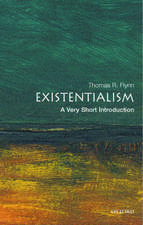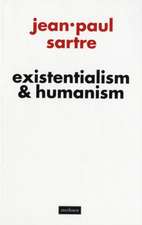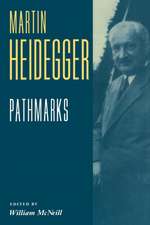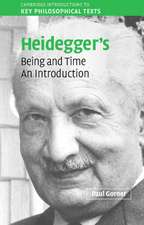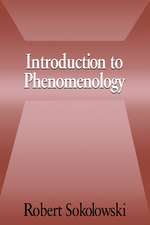Hegel's Phenomenology and Foucault's Genealogy
Autor Evangelia Sembouen Limba Engleză Paperback – 30 iun 2020
| Toate formatele și edițiile | Preț | Express |
|---|---|---|
| Paperback (1) | 259.98 lei 6-8 săpt. | |
| Taylor & Francis – 30 iun 2020 | 259.98 lei 6-8 săpt. | |
| Hardback (1) | 763.07 lei 6-8 săpt. | |
| Taylor & Francis – 28 dec 2014 | 763.07 lei 6-8 săpt. |
Preț: 259.98 lei
Preț vechi: 311.41 lei
-17% Nou
Puncte Express: 390
Preț estimativ în valută:
49.75€ • 51.75$ • 41.07£
49.75€ • 51.75$ • 41.07£
Carte tipărită la comandă
Livrare economică 15-29 aprilie
Preluare comenzi: 021 569.72.76
Specificații
ISBN-13: 9780367599904
ISBN-10: 0367599902
Pagini: 126
Dimensiuni: 156 x 234 mm
Greutate: 0.45 kg
Ediția:1
Editura: Taylor & Francis
Colecția Routledge
Locul publicării:Oxford, United Kingdom
ISBN-10: 0367599902
Pagini: 126
Dimensiuni: 156 x 234 mm
Greutate: 0.45 kg
Ediția:1
Editura: Taylor & Francis
Colecția Routledge
Locul publicării:Oxford, United Kingdom
Cuprins
Hegel's Phenomenology and Foucault's Genealogy
Notă biografică
Evangelia Sembou was born in Athens, Greece. She holds a B.A. in Politics and History from Queen Mary and Westfield College of the University of London, an M.Sc. in Social and Political Theory from The University of Edinburgh and a D.Phil. in Politics from Oxford University. She has taught at the Oxford University Department for Continuing Education and at several Oxford colleges, as well as at the Faculty of Continuing Education at Birkbeck, University of London, UK.
Recenzii
’This lucid text shows how, used together in a dialectic, phenomenology and genealogy grant understandings both of experience and how it is situated in relations of power. Without glossing over their distinctions - the one immersed in a hermeneutic undertaking, the other in historical context - Sembou navigates toward the possibility of a non-foundational social scientific knowledge without presuppositions. A fascinating read.’ David Kreps, University of Salford, UK
Descriere
Previously considered two different strands within continental thought, this book compares and contrasts Hegel's 'phenomenology' and Foucault's 'genealogy', contending that in spite of their differences, these approaches share important commonalities. Considering the possibility of developing a dialectical approach of 'phenomenology' and 'genealogy

